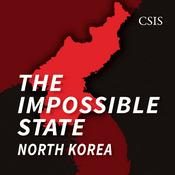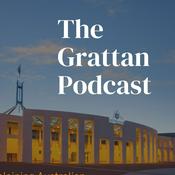Babel: Translating the Middle East
Center for Strategic and International Studies

Latest episode
284 episodes
- This week on a special edition of Babel, Will Todman speaks with Jon Alterman, the creator of Babel and the show’s host since it began in 2019. They discuss Jon’s reflections on 22 years directing the CSIS Middle East Program, his analysis of how the Middle East policy ecosystem has changed during that time, and his advice to those entering the field. Jon and Will cap off the conversation by discussing the lessons Jon will take to his new CSIS role as the Brzezinski Chair in Global Security and Geostrategy.
Transcript: "Babel Special: Jon Alterman's Next Chapter," CSIS, May 22, 2025.
Jon's latest work: "Scenarios That Could Define 2035," CSIS, May 14, 2025.
Jon's career advice: "Advice for Job Seekers in Middle East Policy," CSIS. - This week on Babel, Jon Alterman speaks with Dr. Mohanad Hage Ali, deputy director for research at the Carnegie Middle East Center in Beirut. Mohanad's latest paper for Carnegie investigates the rise of a new form of drug smuggling in Lebanon. Together, they discuss Hezbollah’s involvement in these drug networks, as well as the opportunities to bolster Lebanese sovereignty and state institutions as a result of the group’s weakened standing. Then, Jon continues the conversation with Mona Yacoubian, the CSIS Middle East Program's new director, and Asher Grant-Sasson to discuss the challenges the shifting drug trade poses for Lebanese stability.
Transcript: "Mohanad Hage Ali: Hezbollah and the Captagon Trade," CSIS, May 15, 2025.
Mohanad's latest work: "Double Dealers: Lebanon and the Risks of Captagon Trafficking," Carnegie, March 19, 2025. - On Tuesday, May 6, President Trump declared that the United States would immediately halt its bombing of Houthi targets, bringing an end to months of intensified U.S. strikes across Yemen. The president linked the policy reversal to what he described as the Iran-backed Houthis’ capitulation to U.S. demands, stating that the group had agreed to cease its assaults on U.S. and commercial vessels in the Red Sea. The president’s decision comes as U.S.-Iran nuclear negotiations are expected to advance this weekend and follows Israeli air raids on Sanaa’s airport earlier this week—retaliation for a Houthi missile attack on Israel’s Ben Gurion Airport. Asher Grant-Sasson speaks with Jon Alterman, director of the CSIS Middle East Program, about the core drivers behind this policy shift and the implications it might bear on key regional files, such as the prospect for a renegotiated U.S.-Iran nuclear deal.
- This week on Babel, Jon Alterman speaks with Dina Esfandiary, the Middle East Geoeconomics Lead at Bloomberg. Previously, Dr. Esfandiary served as a senior adviser for the Middle East and North Africa at the International Crisis Group and was a fellow at The Century Foundation. Her research focuses on security in the Persian Gulf and Iran’s foreign relations. Together, they discuss why the United States and Iran are negotiating again, how Tehran’s position has changed since 2015, and the different strategies both countries are likely to pursue at the negotiating table. Then, Jon continues the conversation with Ninar Fawal and Will Todman to discuss how regional and international actors are responding to the ongoing nuclear talks.
Transcript: "Dina Esfandiary: Will Iran Make a Deal with Trump?," CSIS, May 1, 2025.
Dr. Esfandiary's latest work: available via Bloomberg Terminal. - The United States is currently engaged in several high-stakes negotiations across the Middle East and around the world. President Trump has departed from traditional diplomatic norms, opting instead for unconventional negotiating strategies to address the crisis in Gaza, the war in Ukraine, Iran’s nuclear program, Venezuela, and trade. His approach has emphasized compressed timelines and the appointment of negotiators from outside the federal government’s usual ranks. Asher Grant-Sasson speaks with Jon Alterman, director of the CSIS Middle East Program, about the promise and hazards posed by this shift in diplomatic strategy, especially in connection with the Middle East.
More Government podcasts
Trending Government podcasts
About Babel: Translating the Middle East
Babel will take you beyond the headlines to discuss what’s really happening in the Middle East and North Africa. It features regional experts who explain what’s going on, provide context on pivotal developments, and highlight trends you may have missed. Jon Alterman, Zbigniew Brzezinski Chair in Global Security and Geostrategy at the Center for Strategic and International Studies, hosts the podcast along with his colleagues from the Middle East Program. This podcast is made possible through the generous support of the Embassy of the United Arab Emirates. All views, positions, and conclusions expressed here should be understood to be solely of those of the speaker(s).
Podcast websiteListen to Babel: Translating the Middle East, New Zealand's Financial Market's Authority Podcasts and many other podcasts from around the world with the radio.net app

Get the free radio.net app
- Stations and podcasts to bookmark
- Stream via Wi-Fi or Bluetooth
- Supports Carplay & Android Auto
- Many other app features
Get the free radio.net app
- Stations and podcasts to bookmark
- Stream via Wi-Fi or Bluetooth
- Supports Carplay & Android Auto
- Many other app features


Babel: Translating the Middle East
Scan code,
download the app,
start listening.
download the app,
start listening.



































